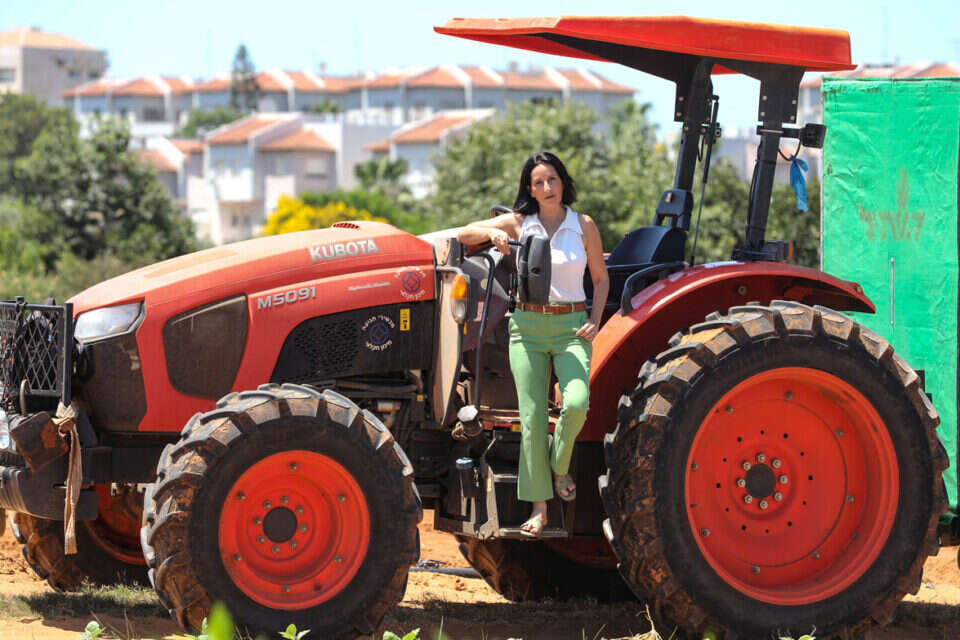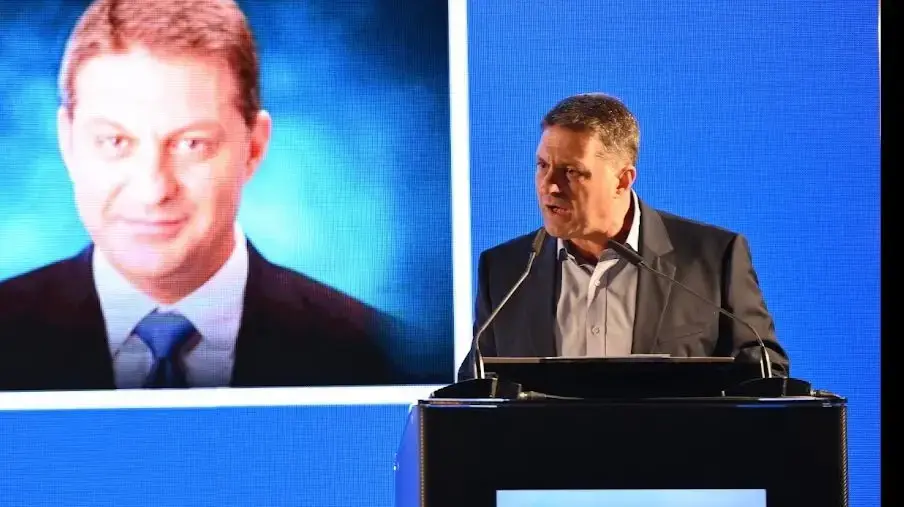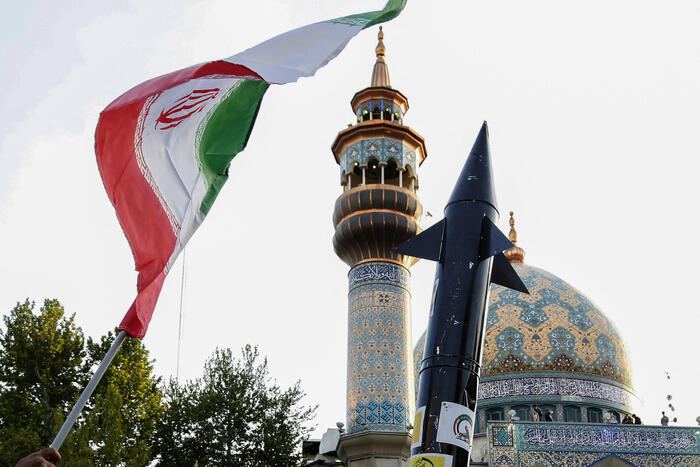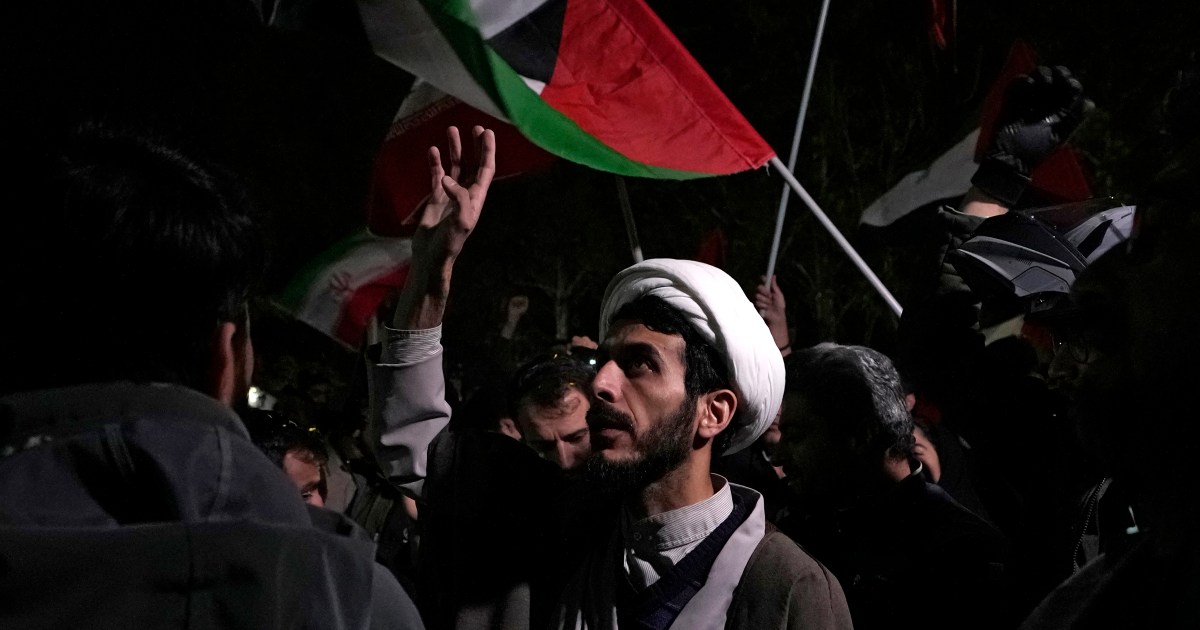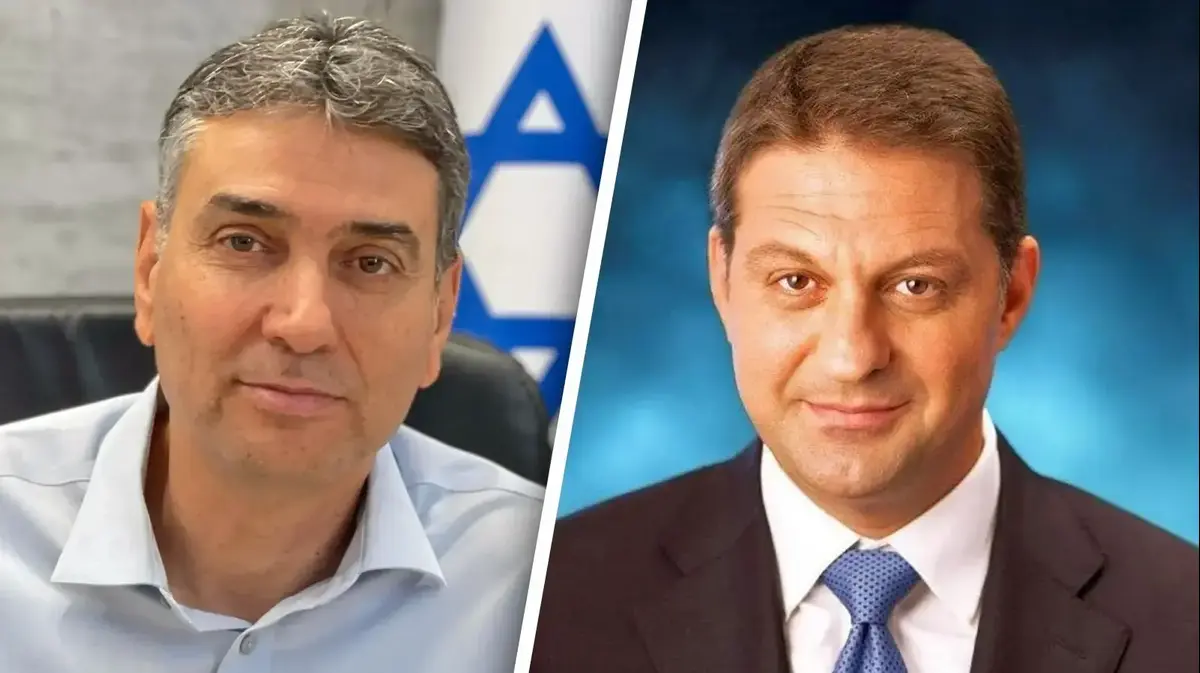On top of the aerial photos, the simulations of the new neighborhood that the mayor of Kfar Saba, Rafi Sa'ar, wants to build for young people, look wonderful.
One central boulevard flanked by a variety of buildings, which for the purpose were painted bright white.
All around fields in monochromatic green - a view from the magazines that everyone would like to see from their window.
This is a neighborhood that is supposed to be built on the agricultural fields of Tzufit - a settlement that was established 89 years ago, 31 years after the establishment of the settlement of Kfar Saba which later became a central city in Sharon and which will celebrate its 120th anniversary this year.
"Where will your child live when he grows up?" Saar wonders in a conversation we had with him in his office.
We wondered why he would not first exhaust the construction possibilities within the city as they are embodied in the urban master plan.
This is the main claim of Scout farmers, who will certainly lose their source of livelihood if the construction goes ahead.
Sa'ar is sure that Kfar Saba should develop horizontally and not vertically.
He mentions that the regional council sits on 95 thousand dunams and has 35 thousand residents.
Kfar Saba, on the other hand, sits on 14,000 dunams with almost 190,000 residents.
The simulation of the new neighborhood for young people in Kfar Saba on Scout lands, photo: Israel Land Authority
"There is no vacant land in Kfar Saba," he states.
"When I took office, I received an inheritance, a plan and a plan for 4,700 housing units.
It was announced in January 2018, a year before I took office, and was published in the first days of my term, some of it on the territory of Kfar Saba and some on the territory of the South Sharon Regional Council.
I realized that there was a very big event here and we started to reduce the program.
Today the program is significantly smaller and I will make more additional corrections.
But the council is not interested in the region.
It has huge areas - and agriculture that is mostly leased to others and they are not ready to give up areas.
They say we are going to eliminate the seat.
These are disconnected passwords.
They are launching an aggressive campaign against me and the state.
Where will my son live who will get married in a few years?
On Mars?".
"imperialist" and "demagogue"
As mentioned, the construction plan, named and TML 1088, has widespread opposition in the regional council and among several hundred residents of Kfar Saba, who believe that the construction - if realized - will rob them of the view. Voice objections to an investigator.
The discussions within the committee are emotional and difficult, and to the astonishment of the Hotmail staff, they descend into personal lines. From the leaks obtained by "Israel Hayom" it appears that the head of the South Sharon Council, Osherat Gani-Gonen, calls Sa'ar an imperialist and a bully in them, while also referring to his memorable election statement - the annex In response, Sa'ar calls her a demagogue and claims that the council "took over the area with pigs", a statement that aroused her anger.
Rafi Saar
absorbing an "aggressive campaign",
Gani Gonen approves.
saved the seat of Sirkin,
At Tsofit they initially hired a public relations office, and some of the signs they posted inside Kfar Saba were removed.
On the other hand, Kfar Saba also uses public relations, but according to Sa'ar, those who manage the information are actually the government ministries.
Demonstrations are also planned later.
"If necessary, we will go all the way to the Supreme Court," threatens Gani-Gonen.
"Even when I was the CEO of Kfar Saba municipality, I opposed the TML. We said it would collapse the city from an economic and transportation point of view. Rafi says, 'Go do farming in the Bekaa.' Why take agricultural land if you don't have to?".
Eran Bek is a third generation farmer in Tzoutif.
We are standing at the self-harvesting farm he established a few hundred meters from the outskirts of the city, where families enjoy a unique experience that cannot be found on Weizman Street in the city.
He grows a total of 250 dunams - also in commercial agriculture, and the construction plans of Kfar Saba threaten to wipe out his business completely.
"We are one of the moshavs that really do agriculture," he explains.
"There aren't many areas like this left in Israel. They are getting smaller and smaller, and we are talking about the last agricultural land reserves in the center. On the other hand, Saar has a lot of evacuation-construction projects that he is not implementing, and he has 1,500 dunams in Ben Yehuda that he does not want to deal with because some of them are private. Here He also has support agreements from the state - from which he is supposed to receive money. As far as he is concerned, in the future, he will also reach Bar Ilan."
Eran Bak.
really doing farming,
Saar jokingly tells us that this is not a bad idea. But to be serious, even if he finishes all the construction in the city he will have to expand.
"Why are you here to destroy a farming settlement? He's sending us to the Jordan Valley. It's not an area suitable for agriculture there. The land here is suitable for everything. If they take it away from me, where will I work? What, will I become a taxi driver?"
"What else are you planning for us?"
The fight against Kfar Saba is one of the fiercest that Southern Sharon is managing, but these days the regional council is dealing with about 21 sub-districts, sub-districts and geographical committees, which want to bite the open and agricultural areas for the benefit of construction in the nearby cities or the construction of infrastructures.
This is the only council in the country that simultaneously faces so many fronts for its image - and in practice seeks to preserve the agricultural areas and the last pieces of nature in the center of the country.
The council borders on 24 different authorities.
Most of the time, it is harnessed to be under the stretcher in everything related to the need for residential construction and infrastructure.
There are sewage treatment plants, gas plants, flight path quarries and more on her territory, but she realized that even though this creates tensions with the neighbors who want to develop urban, she has no choice but to fight.
Here are some of the struggles it is leading: the Borders Committee in Kochav Yair, the Borders Committee in Kfar Sirkin, the construction of the sub-talent 91 (Hashalom) power plant, the M1 Metro depot (maintenance complex for the light rail) - together with Kfar Saba, the Triangle and Samaria municipalities, Gan Haim and Sde Warburg , and an aggregates unloading terminal (used as an additive to prepare asphalt and substrate for roads, airports and railroads).
Recently two victories were won in the council.
The last significant one was about three weeks ago, at the geographic committee in front of the city of Elad, which requested for itself the territory of Sirkin South - an aerial distance of six kilometers from them.
"I have never seen such a planning hallucination," says Gani-Gonen, "the ultra-orthodox city is remote from the territory, but this nonsense was signed by the absolute majority of the committee members on the recommendation of the then interior minister, Aryeh Deri. Fortunately, the government fell and he did not have time to sign. Eilat Shaked who replaced him, she is an excellent and matter-of-fact minister and immediately accepted the opinion of the minority. This is how she saved the Sirkin seat."
The map of the struggles of the South Sharon Regional Council,
A sign as part of the farmers' struggle in southern Sharon,
The second war was against the Ministry of Housing, for the construction of a new neighborhood in Kochav Yair-Zur Yigal on land of Moshav Tzur Natan.
Beyond the job of growing avocados, the area is of high ecological importance - including a beautiful stream and wild animals such as Eretz Israel deer.
"In Kochav Yair, they wanted to destroy the area and build thousands of housing units in it," Gani-Gonen explains, "after the geographic committee discussed it for almost two years - it recommended to Sarah to keep the area with us. It's a big fight we did with the green associations and the green lobby in the Knesset.
"We are ready to be under the stretcher - but not on it," emphasizes the head of the council.
"Our war is to preserve the agricultural lands, not for us. The green lung in the center of the country is no less important than in other places. We are not keeping this land for ourselves. The state is the one that needs to recalculate a course."
And in war as in war, there is also a "war minister".
Uri Padlon is the director of the strategy and border changes department in South Sharon.
"I also wondered why such a position was needed when I got here," he explains, "it's a unique position that, as far as I know, doesn't exist anywhere else. But I learned that you start a week like everyone else, and suddenly a big fight lands on you. We need to mobilize resources, residents and the media, and fight It is very challenging. Unfortunately, we hold in Israel the dubious title of 'Israel's champions in struggles'. You never know where the next trouble will come from. It comes from the ground, if it is land, from air pollution - if it is power plants, and now it comes from the sky when you want, for example, to open a router "C for take offs.
It is strange to say that I am the 'Minister of War', but your description is correct.
If we don't fight now, let it be clear that as soon as they build, the area will no longer be arable land."
And what is the most sleep-depriving of your eyes?
"The things we don't know are being planned for us here make me turn over in bed the most. We know how to deal with what is already there."
The problem is with the HTML law
Later on in our tour, we meet Naftali Malchiel, the chairman of the association in Moshav Gan Haim, where 250 families live. He shows us an area of about 370 dunams that is designated for the maintenance complex for line 1M of the light rail (the depot) east of Route 4 and north of Kfar Saba. The plan Approved for deposit in Tel (Committee for National Infrastructures).
This is a decision that simply fell on the farmers and residents of the northern neighborhoods of Kfar Saba like a thunderbolt on a bright day, without anyone knowing about its existence.
Naftali Melchiel.
"The program surprised us,"
Sharon Shanhav Tal and Molly Oren.
Do not believe that the Israeli government will lend a hand to the construction of the power plants,
"It's a plan that completely surprised us," he admits.
"They forcefully told us, 'Here it will be.' No offense to anyone, but at the moment they still haven't accepted the offer, which is really the best. We've had a new generation for almost a decade, a third generation of farmers who fill the fields with mangoes, blueberries, strawberries - and we're still in a serious land shortage. When this depot takes away the the area, we will lose all our image as farmers here. I have been working in agriculture for 53 years, since the age of 6. Everything will disappear."
Sharon Shanhav Tal from the Neve Yamin seat is an activist at the headquarters of the struggle against the construction of the gas power plant promoted by the Tel, the Electricity Authority, the Israel Land Authority, the Ministry of National Infrastructures, Energy and Water and the company "Reindeer Energy".
The power plant is supposed to be built about 500 meters from the residents' houses.
The residents fear contamination of the groundwater they drink from and air pollution.
"We understand that we need to increase the country's electricity output. We have a problem with establishing power plants in Israel at all. Why not utilize the sun's energy through solar panels? Why create another polluting station that will increase global warming? So that another company can earn a few shekels?".
Molly Oren, a resident of Nirit and a member of the council and plenum in the South Sharon Regional Council, will also suffer from the damage of the power plant.
"There are market forces here, people with capital who have different interests than the public - I'm sure that all they want is to live in appropriate conditions without pollution. We will go out with all our might against the establishment of power plants throughout the country. I know that my council president will be on the back foot So that it doesn't happen. I don't believe that the Israeli government will allow it. Everyone has families and children and everyone wants clean and pure air."
"Be a less good country"
One of the reasons for the many struggles not only in South Sharon, but also in other regional councils, is the National Housing Authority Law, which is designed to quickly advance construction plans for housing. The power in the hands of the Housing Authority is great because it received many powers from the National Planning and Construction Council.
The regional government decided about a year ago to act to reduce its power and introduce amendments.
"We succeeded in agreeing with the Minister of the Interior to renew the HTML in a restrained format," says the secretary general of the Moshavim movement and chairman of the Israel Agricultural Association, Amit Yafarah, "today the HTML cannot affect more than 30 percent of a block of a planned agricultural settlement. We also included a hearing before the announcement of a preferred housing complex for the head of the authority from which the land is taken and we also included an observer - with the understanding that we need to take care of other values at the same time, such as food security and open spaces."
Amit Yifrah.
The country fell in love with TMLs,
Yafarah is one of these observers and also sat, for example, in the discussions on Scout territories.
"The bottom line is that the state has fallen in love with TMLs and the need to declare preferred housing complexes, but it does not understand the need to address other problems at the same time such as open spaces, infrastructure and transportation.
Unfortunately, it seems that at the end of the day it is much more convenient for the State of Israel to subsidize the city in the village instead of creating a strategic plan to increase the supply while preserving the values of nature and being the responsible adult who looks forward with the understanding that there will not be any open areas in the center in the future."
What do you see in the eyes of the people who sit on the committees?
"I see on our side, of the farmers who make a living from the land, a great deal of pain and anger at the state that does not allow them to live off the land in cases where they are not justified in the extreme. We are not saying that we will not give land under any circumstances, but we are aiming for proportionality. We see plans with the planners that are an attempt to meet goals or to fill in excels, which are good for communication, good to say 'here we broke records', but they are not smart planning and do not see the benefits that should grow from increasing the supply. Many times planners fall in love with the aggressive email that comes at the expense of quality and good planning."
The legal advisor of the "Adam Teva and Din" association, Eli Ben Ari, agrees with this claim.
"Building on an agricultural field is the easiest," he explains.
"We at 'Adam Teva and Din' have been fighting this for years. Our claim is that the national interest is to work much harder and also to leave room for ecological corridors, for animals and plants. We say - take advantage of what is available for this. The problem starts when they don't think in such a long term Long. The meaning of this is that we will have a less good country - unequivocally."
Thais work in agricultural land in southern Sharon.
"The state needs to recalculate a course,"
That is?
"It depends on each planning body and the type of damage it causes. When you reduce agricultural areas, you reduce food security. Even with regard to green areas, there are studies that prove that people's mental health is harmed if they are not maintained. And if we talk about ecological corridors, beyond the tourist interest, they are necessary for connecting Among all the open areas in the country. When you cut them off from each other, it's like you take humans and put them in an isolated village. There is no population exchange. It turns out that nature does not exist on isolated islands. The combination of all this together is a worse country. Because of the laziness of the planners, we pay the price".
So you are basically saying that the authorities are not doing their job?
"At the end of the day, the officials who work in the Israel Land Authority and the Ministry of Housing, which are responsible for most of the construction initiatives in the country, do their job as it is defined for them. They are told to 'bring us housing units'. They are not told to bring us housing units while preserving natural values for the future. This definition should be different. What happens is that these parties order work from outside parties, and then plan a neighborhood. They do not consider the space because we really need places to live in. This is the difference between a positive feature and planning on the face. This is actually the complete opposite of planning an area and an environment and a space and making sure that it is High quality".
So when the areas in the center of the country run out, people will move to the Negev and the north?
"Let there be no choice, people will live in these areas and invest in them. But we are not supposed to use the central area only for residences. We need to preserve additional values in it that are critical to our quality of life in Israel."
In Kochav Yair, Braindir Energy, in NTA and the planning director asked not to comment on the matter.
were we wrong
We will fix it!
If you found an error in the article, we would appreciate it if you shared it with us

